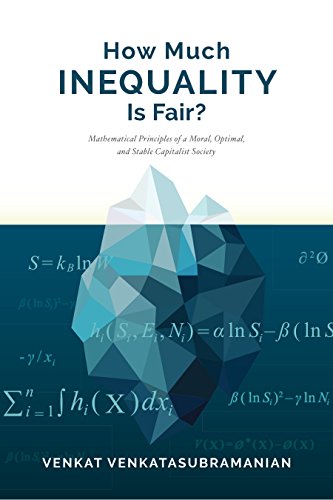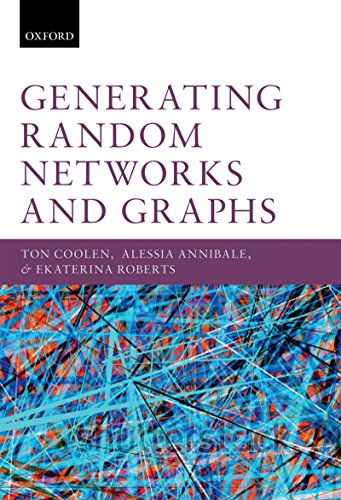
By Venkat Venkatasubramanian
ISBN-10: 0231180721
ISBN-13: 9780231180726
How a lot Inequality is Fair? synthesizes principles from economics, political thought, online game concept, details conception, statistical mechanics, and platforms engineering right into a mathematical framework of a good loose marketplace society. the major to this framework is the perception that maximizing equity capability maximizing entropy, which permits one to figure out the fairest attainable point of inequality in pay. This framework offers an ethical justification for capitalism in mathematical phrases. After outlining this framework, Venkat Venkatasubramanian compares his theory’s predictions to the particular inequality info of other countries—showing, for example, that Scandinavia has near-ideal equity, whereas the us is markedly unfair—and discusses the theory’s implications for tax coverage, social courses, and govt compensation.
Read or Download How Much Inequality Is Fair?: Mathematical Principles of a Moral, Optimal, and Stable Capitalist Society PDF
Best general physics books
Physics in your ft provides a set of physics difficulties protecting the huge variety of subject matters in classical and glossy physics that have been, or might have been, requested at oral PhD checks at Berkeley. The questions are effortless to formulate, yet a few of them can in basic terms be responded utilizing an out-of-the-box process.
Download PDF by Oliver Lodge: Man and the Universe: A Study of the Influence of the
Initially released in 1908, hotel applies his historical past in physics to the examine of Christian Theology. He goals to reconcile spiritual doctrine to clinical thought, calling for a re-interpretation of biblical texts to permit for the mixing of technology whereas at the same time creating a case for the attractiveness of miracles within the medical group.
Producing random networks successfully and properly is a crucial problem for useful functions, and an attractive query for theoretical research. This booklet offers and discusses universal equipment of producing random graphs. It starts with techniques similar to Exponential Random Graph types, the place the exact chance of every community showing within the ensemble is certain.
The Origin of Mass: Elementary Particles and Fundamental - download pdf or read online
The invention of a brand new common particle on the huge Hadron Collider at CERN in 2012 made headlines in global media. considering that we already be aware of of a giant variety of undemanding debris, why did this most modern discovery generate loads pleasure? This small booklet finds that this particle presents the most important to knowing the most striking phenomena which happened within the early Universe.
- Magnetic Microwires: A Magneto-Optical Study
- Physical Electronics: Handbook of Vacuum Physics: Volume 2
- No Wonder You Wonder!: Great Inventions and Scientific Mysteries
- How the Great Scientists Reasoned: The Scientific Method in Action (Elsevier Insights)
- Advanced Solid State Theory (IOP Concise Physics)
Extra info for How Much Inequality Is Fair?: Mathematical Principles of a Moral, Optimal, and Stable Capitalist Society
Example text
How Much Inequality Is Fair?: Mathematical Principles of a Moral, Optimal, and Stable Capitalist Society by Venkat Venkatasubramanian
by Kevin
4.1



